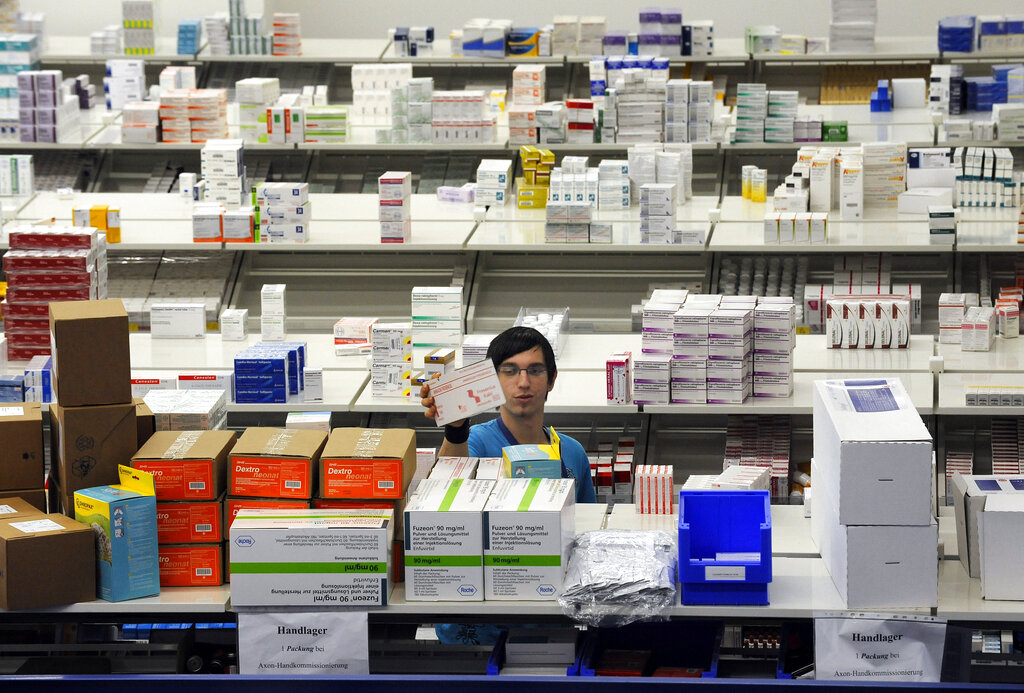The medicines shortage that was already a problem after the coronavirus outbreak has become even more pressing with supply chain interruptions caused by the war in Ukraine, Bavarian news portal BR24 reports.
In a survey, around two-thirds of self-employed pharmacists in Germany have said that delivery bottlenecks are currently one of the biggest issues in their everyday work — a value that has been high for years, according to Thomas Metz from the Bavarian Association of Pharmacists.
Mianusch Nercissian works in the pharmacy on Kaulbachplatz in Nuremberg and is responsible for ordering medicine. She reports that every fourth drug is currently missing. Together with her boss, she and the team have already considered pre-ordering certain medications such as painkillers or antibiotics for the coming winter, as the situation is unlikely to improve.
Margit Schlenk from the Moritz pharmacy is familiar with this problem, which is why she has started making paracetamol juices for children herself. Otherwise, they try to look for solutions where possible.
“What substitute active ingredient is there? Can I combine different strengths … so that I get the target strength back? We are very well networked in the pharmacist community throughout Germany and help each other if someone still has something in stock,” Schlenk told the German news outlet.
The problem of delivery bottlenecks for drugs has existed for 10 to 12 years, according to Thomas Metz from the Bavarian Association of Pharmacists in Munich. The main problem is that most medicines are produced outside of Europe, for example in India or China, so there is no longer any direct control over either production or supply chains.






